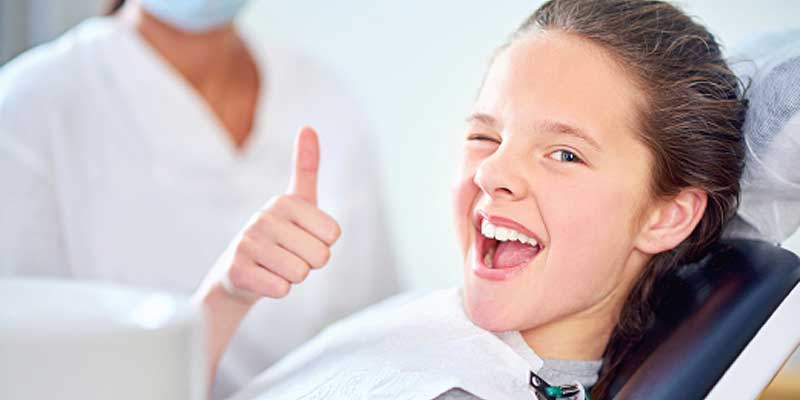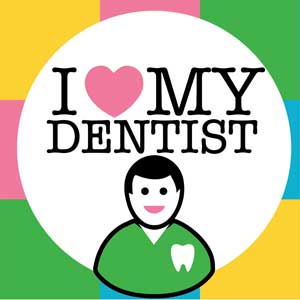There are many good dentists working in Los Angeles and Downtown Los Angeles However, finding a good dentist that is right for you is often complicated. This is why many people after finding a good dentist they can trust stay with him or her for years and years. We hope that our tips for choosing a good dentist in Los Angeles will help you make the best choice that fits your needs. Since finding a good dentist in LA is a fairly complex topic, we are covering it in multiple posts over several weeks. This is a second installment of the series. You can read our previous post on finding the best dentist in Los Angeles.


Good Dentist Should Have Educational Credentials
General Dentistry
The DDS (Doctor of Dental Surgery) or DDM (Doctor of Dental Medicine) degrees typically take eight years to complete, from undergraduate school through the doctoral stage. A DDS or DDM are general dentists, much like primary care physicians. They are the first line of defense when you have trouble with the teeth or gums. The DDM and DDS degrees are very similar in training, but some consider DDS degree as requiring more oral surgery training.
Students earning DDS and DDM degrees learn about providing dental care to diverse populations, diagnosing and treating oral conditions and mastering dental treatment procedures. They learn restorative dentistry, periodontics, oral surgery, pediatric dentistry, and other dental specialties.
A DDS or DDM may refer patients to more specialized dental doctors when necessary. To focus on a specific area of dentistry, specialty dentists will usually earn a master’s degree or take a postgraduate certificate program after completing their DDS or DDM program. Most specialists fall into the following categories:
Pediatric Dentistry
After completing their DDS or DDM degree, dentists can earn a certificate or a master’s degree in pediatric dentistry if they are interested in practicing as a general dentist for children and adolescents. These programs focus on meeting the needs of all patients in this age group, from healthy children to sick or disabled children. Both certificate and master’s degree programs are structured to meet the criteria for certification from the American Board of Pediatric Dentistry.
Oral and Maxillofacial Care
To become an oral or maxillofacial surgeon, dentists can earn a master’s degree or a postgraduate certificate in oral or maxillofacial surgery. They learn to perform general and specialized surgery using anesthesia.
To earn a master’s degree or a certificate in oral and maxillofacial pathology, dentists explore the causes and nature of oral diseases and learn how to treat these issues through surgery and medication.
Dentists who want to practice oral and maxillofacial radiology can earn a master’s degree in this specialty. In this program, they learn how to use radiation to treat oral and maxillofacial diseases. This degree qualifies graduates to pursue certification from the American Board of Oral and Maxillofacial Radiology.
Orthodontics
Orthodontists with a master’s degree or a certificate in orthodontics specialize in correcting dental abnormalities. In the orthodontic program, dentists explore facial and cranial growth and learn how to adjust irregularities through surgery or corrective devices.
Periodontics
Dentists can earn either a master’s degree or a postgraduate certificate in periodontics if they are interested in treating jaw and gum diseases. These programs include clinical and research experiences along with treatment plans, types of therapies, and dental implantology.
Prosthodontics
If dentists choose to earn a master’s degree or a postgraduate certificate in prosthodontics, they learn about different methods for replacing missing teeth. In this program, they learn about fixed, removable, and implant prosthetics.
Endodontics
With a graduate degree or a certificate in endodontics, dentists can treat root canal and dental pulp disorders. These programs address the structure of the jaw and teeth, and dentists learn how to perform advanced surgery.
Staff Should Also Have Educational Credentials
Dental Hygiene
RDH (Registered Dental Hygienist) professionals earn a bachelor’s degree in dental hygiene learning how to provide proper oral care, examine patients’ teeth and gums, identify diseases or other conditions, work with various dental tools, materials and equipment and perform other dental procedures under the supervision of a licensed dentist.
Dental Assisting
While studying to become RDA (Registered Dental Assistant), students learn the necessary skills to provide patient care such as collecting patient medical history, assisting during various procedures and managing office tasks. Students take business courses, participate in laboratory and clinical training and receive classroom instruction regarding dentistry. At the end of the program, students are ready to take the Dental Assisting National Board (DANB) examination to become certified.
Other Educational Credentials
Creating healthy smiles using complex procedures like palate surgery, Invisalign, or dental implant more often than not require an expert who is specially trained and skilled in this particular procedure. Thus it is important to choose a good dentist who has education, training, experience, and competence in this particular specialty. Seek out a dentist with a certificate in the complex procedure you need from a reputable professional organization.
Good Dentists Should be Licensed
Dentists in Los Angeles must be licensed by the Dental Board of California as a safeguard for consumers. They are not required by law to have malpractice insurance, however, most dentists have malpractice insurance coverage for your protection. You should look for reviews by their previous patients to verify high satisfaction, license, time in business, clean complaint record, and more.
Services Offered by Dentists
Dentists have come so far from the bygone days when patients feared a dental office visit. Enhanced pain management techniques, friendlier office environments, and options such as sedation dentistry have taken virtually all of the pain and stress out a visit to the dentist. Good dentists in Los Angeles constantly improve their ability to ease your fears and make the treatment experience as pleasant as possible.
Some of the state-of-the-art procedures provided by good dentists in Los Angeles and Downtown Los Angeles include Invisalign, dental implants, root canal therapy, TMJD therapy, prosthodontics, endodontics, periodontal therapy, extractions, and custom smile makeovers.
Dentists in Los Angeles and DTLA also offer many or aesthetic dentistry procedures, including teeth whitening, metal-free tooth fillings, porcelain crowns, veneers, and other restorative dentistry treatments.
Of course, good dentists also perform simple dental maintenance services, such as family dental care, children’s dentistry, dental hygiene, and tooth cleanings. In case of major pain from tooth infections or accidents, many good dentists in Los Angeles and Downtown LA are available for emergency dental care and palliative dentistry, including providing appropriate dental medications.
Many general dentists in Los Angeles and Downtown LA have stepped up their technology and medical practices efforts to minimize referrals and expanded the range of dental care they offer. This makes many complex treatments more convenient and less expensive for the patients. Ideally, you should seek out dentists who are able to provide emergency and complete dental care, including root canals and extractions, in-office without having to refer out for every major dental procedure outside of regular maintenance.
We want you to make the right choice, but we also hope that after doing all the recommended research and legwork, you’ll choose River Dentistry. For more information about our Downtown Los Angeles dental office and with any questions, please call us at 213-486-0006 or make your appointment online.











